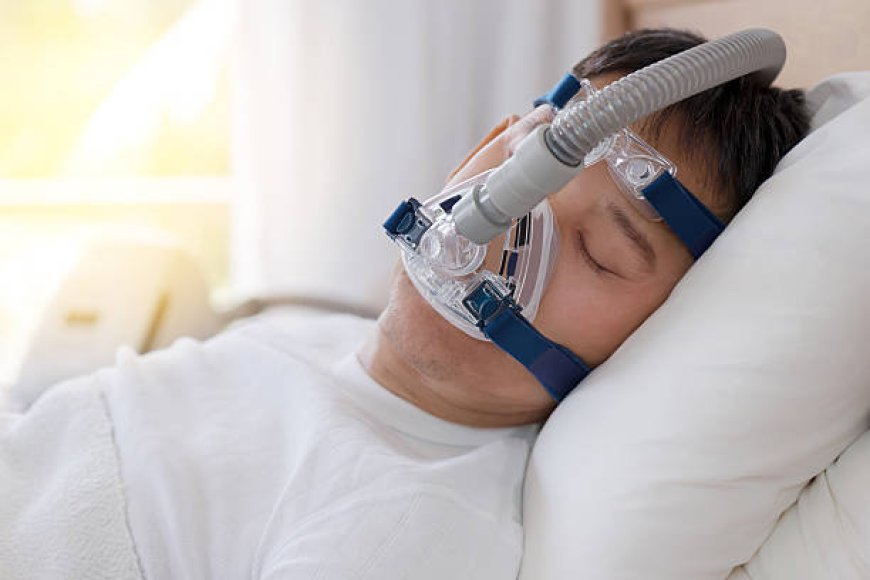How Abu Dhabi Clinics Can Help You Stop Snoring
1. Introduction
1.1. Overview of Snoring
Snoring is a common issue affecting millions of people worldwide. It occurs when airflow through the nasal passages and throat is partially blocked during sleep, causing the surrounding tissues to vibrate and produce a sound. While it might seem like a minor inconvenience, persistent snoring can impact sleep quality and overall health.
1.2. Importance of Addressing Snoring
Addressing Snoring treatment in Abu Dhabi is crucial for improving sleep quality and overall well-being. Chronic snoring can disrupt sleep for both the individual and their partner, leading to fatigue, irritability, and potential health issues such as sleep apnea.

1.3. How Clinics in Abu Dhabi Can Help
Clinics in Abu Dhabi offer a range of diagnostic and treatment options for snoring. These facilities are equipped with advanced technology and staffed by specialists who can tailor treatments to address the underlying causes of snoring effectively.
2. Causes of Snoring
2.1. Anatomy of Snoring
Snoring typically results from the relaxation of the muscles in the throat and tongue during sleep. This relaxation can cause the airway to partially collapse, leading to the characteristic sound of snoring. Factors such as nasal congestion, enlarged tonsils, and a thick palate can exacerbate this issue.
2.2. Lifestyle Factors
Certain lifestyle factors contribute to snoring, including obesity, smoking, excessive alcohol consumption, and sleeping on one’s back. Addressing these factors can significantly reduce or eliminate snoring.
2.3. Medical Conditions
Medical conditions such as sleep apnea, sinus infections, and allergies can also contribute to snoring. Identifying and managing these conditions is essential for effective snoring treatment.
3. Diagnostic Approaches in Abu Dhabi Clinics
3.1. Initial Consultation
The diagnostic process begins with a comprehensive consultation where the specialist reviews your medical history, sleep patterns, and lifestyle factors. This information helps in understanding the potential causes of snoring.
3.2. Sleep Studies and Polysomnography
For a detailed diagnosis, clinics may recommend sleep studies or polysomnography. These tests monitor various physiological parameters during sleep, such as brain activity, eye movement, heart rate, and breathing patterns, to identify the presence of sleep disorders.
3.3. Specialized Tests
Specialized tests, such as nasal endoscopy or MRI, may be used to examine the anatomical structures of the airway and identify any abnormalities contributing to snoring.
4. Non-Surgical Treatment Options
4.1. Lifestyle Modifications
Lifestyle changes are often the first line of treatment for snoring. This includes losing weight, avoiding alcohol before bedtime, quitting smoking, and changing sleep positions. Simple adjustments can have a significant impact on reducing snoring.
4.2. CPAP Therapy
Continuous Positive Airway Pressure (CPAP) therapy involves using a machine that delivers a continuous stream of air through a mask to keep the airway open during sleep. This treatment is particularly effective for snoring associated with obstructive sleep apnea.
4.3. Oral Appliances
Oral appliances are devices worn in the mouth to reposition the lower jaw and tongue, keeping the airway open. These appliances are customized based on the individual's needs and can be a suitable alternative for those who cannot tolerate CPAP therapy.
4.4. Behavioral Therapy
Behavioral therapy focuses on modifying habits and behaviors that contribute to snoring. Techniques may include sleep hygiene practices and exercises to strengthen the throat muscles.
5. Surgical Treatment Options
5.1. Uvulopalatopharyngoplasty (UPPP)
Uvulopalatopharyngoplasty is a surgical procedure that removes excess tissue from the throat, including the uvula, soft palate, and sometimes the tonsils. This procedure aims to widen the airway and reduce snoring.
5.2. Laser-Assisted Uvulopalatoplasty (LAUP)
Laser-Assisted Uvulopalatoplasty uses a laser to remove or shrink excess tissue in the throat. This minimally invasive procedure aims to reduce snoring by improving airway airflow.
5.3. Radiofrequency Ablation (RFA)
Radiofrequency Ablation involves using radiofrequency energy to shrink and stiffen the tissues in the throat. This technique helps reduce the vibrations that cause snoring.
5.4. Inspire Therapy
Inspire Therapy is a surgically implanted device that stimulates the muscles of the throat to keep the airway open during sleep. This treatment is suitable for individuals with moderate to severe obstructive sleep apnea who have not responded to other treatments.
6. Choosing the Right Clinic in Abu Dhabi
6.1. Qualifications and Expertise
When choosing a clinic, ensure that the specialists are qualified and experienced in treating snoring and sleep disorders. Look for certifications and professional affiliations that demonstrate their expertise.
6.2. Clinic Facilities and Technology
Advanced facilities and up-to-date technology are crucial for accurate diagnosis and effective treatment. Check if the clinic offers comprehensive diagnostic tools and modern treatment options.
6.3. Patient Reviews and Success Stories
Patient reviews and success stories provide insight into the clinic’s reputation and the effectiveness of their treatments. Positive feedback from previous patients can help you make an informed decision.
6.4. Cost and Financing Options
Consider the cost of treatments and inquire about financing options. Many clinics offer payment plans or financing to make treatments more accessible.
7. What to Expect During Treatment
7.1. Initial Evaluation and Diagnosis
During the initial evaluation, the specialist will assess your condition, discuss treatment options, and develop a personalized treatment plan. This step is crucial for setting realistic expectations and preparing for the next steps.
7.2. Treatment Plan Development
Based on the diagnosis, a treatment plan will be developed to address the specific causes of your snoring. This plan may include a combination of non-surgical and surgical options, depending on your needs.
7.3. Follow-Up and Monitoring
Follow-up appointments are essential for monitoring progress and adjusting the treatment plan as needed. Regular check-ins help ensure that the treatment is effective and that any issues are promptly addressed.
8. Post-Treatment Care and Management
8.1. Immediate Post-Treatment Care
After treatment, follow the specialist’s instructions for post-operative care. This may include medication, dietary restrictions, and activity limitations to ensure proper healing and recovery.
8.2. Long-Term Management
Long-term management involves maintaining any lifestyle changes recommended by your specialist and attending follow-up appointments. Continued adherence to these recommendations is essential for long-term success.
8.3. Monitoring and Adjustments
Monitor your progress and report any changes or concerns to your specialist. Adjustments to the treatment plan may be necessary to achieve the best results and prevent recurrence of snoring.
9. Conclusion
9.1. Summary of Treatment Options
Abu Dhabi clinics offer a range of diagnostic and treatment options for snoring, from lifestyle modifications and non-surgical therapies to advanced surgical procedures. Choosing the right approach depends on the underlying causes and individual needs.
9.2. Encouragement to Seek Help
If snoring is affecting your quality of life, consider seeking help from a specialized clinic in Abu Dhabi. With the right diagnosis and treatment plan, you can achieve better sleep and improve your overall well-being.
10. FAQs
10.1. How effective are non-surgical treatments for snoring?
Non-surgical treatments can be very effective, particularly for snoring caused by lifestyle factors or mild obstructive sleep apnea. The success of these treatments often depends on adherence to lifestyle changes and the specific cause of snoring.
10.2. What are the risks associated with snoring surgeries?
Surgical treatments for snoring, like any surgery, carry risks such as infection, bleeding, and complications related to anesthesia. It is important to discuss these risks with your specialist before proceeding.
10.3. How can I prepare for a sleep study?
Preparation for a sleep study typically involves following specific instructions regarding sleep patterns and avoiding stimulants. Your clinic will provide detailed instructions on how to prepare for the study.
10.4. Are there any lifestyle changes that can help reduce snoring?
Yes, lifestyle changes such as losing weight, avoiding alcohol before bed, quitting smoking, and sleeping on your side can significantly reduce snoring.
10.5. How do I choose between different treatment options?
Choosing the right treatment option involves considering factors such as the severity of snoring, underlying causes, and personal preferences. Consult with a specialist to determine the most appropriate approach for your situation.
What's Your Reaction?
 Like
0
Like
0
 Dislike
0
Dislike
0
 Love
0
Love
0
 Funny
0
Funny
0
 Angry
0
Angry
0
 Sad
0
Sad
0
 Wow
0
Wow
0



















































